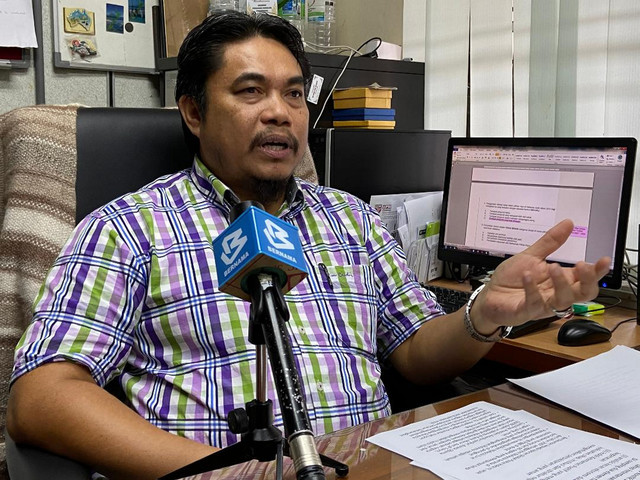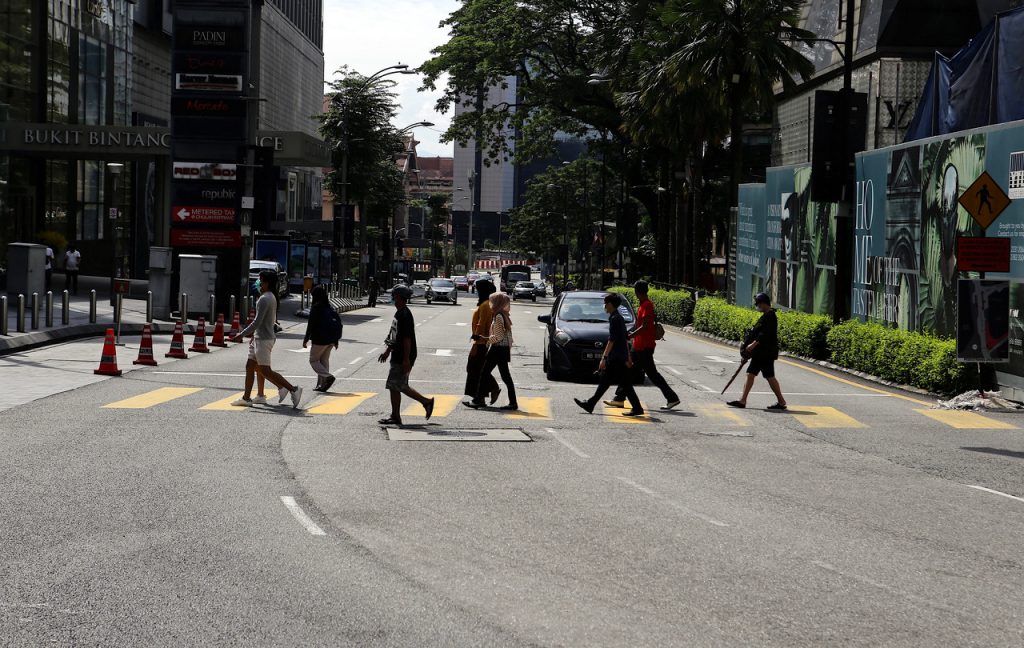By Erda Khursyiah Basir

KUALA LUMPUR, July 8 (NNN-BERNAMA) – It may not be apparent to many but the peace and harmony prevailing among the nation’s multi-ethnic society are actually a reflection of the people’s adherence to the five principles of the Rukun Negara (Malaysia’s national principles).
Whether consciously or unconsciously, Malaysians are expressing the core tenets of Rukun Negara – Belief in God, Loyalty to King and Country, Supremacy of the Constitution, Rule of Law, and Good Behaviour and Morality – in their daily lives.
Universiti Putra Malaysia Department of Government and Civilisation Studies lecturer Associate Prof Dr Mohd Mahadee Ismail said it would not be an exaggeration to say that Malaysian life is a reflection of the Rukun Negara.
“It may seem difficult to relate our daily lives to the contents of Rukun Negara but, if observed in letter and spirit, the pattern of life of Malaysians is indeed closely linked to the five principles,” he told Bernama in an interview ahead of the 50th anniversary celebrations of Rukun Negara, which will be launched Thursday in conjunction with Merdeka Month and National Day 2020.

Prime Minister Muhyiddin Yassin is expected to launch the celebrations in Putrajaya.
The Rukun Negara was drawn up by the government and proclaimed by the fourth Malaysian King Yang di-Pertuan Agong Tuanku Ismail Nasiruddin Shah Ibni Al-Marhum Sultan Zainal Abidin on Aug 31, 1970.
Formulated after the racial riots of May 13, 1969, the Rukun Negara was aimed at forging racial unity and harmony among the nation’s multiracial communities.
NOBLE VALUES
Mohd Mahadee said although there have been misunderstandings in this country that threatened to harm interracial ties, they were, however, isolated and merely involved a few irresponsible parties.
On assertions that the Rukun Negara has been largely forgotten, especially among the young generation, he said instead of looking at it from a negative angle, one should look out for the noble values embraced by many Malaysians.
“These include the spirit of neighbourliness… we may not be of the same race or practice the same religion, but we are ever-ready to extend a helping hand to anyone irrespective of their ethnicity,” he said, adding that the diversity of Malaysian society constitutes the nation’s strength.
Pointing to Malaysia’s success in containing the COVID-19 pandemic, Mohd Mahadee said it was largely due to the people’s strict compliance with the Movement Control Order (MCO) which, he added, can also be characterised as observing the principles of the Rukun Negara.
“Such an act of compliance (with the MCO) can be characterised as one of the ways the people have been observing the principles of Rukun Negara. It was reported that 95 to 97 percent of the people stayed at home during the MCO period.
“They may not have been conscious of it but their obedience showed that Malaysians have a high degree of self-discipline, to the extent of helping the nation to overcome this unprecedented crisis and earn the recognition of other countries,” he said, adding that it would not have been possible without the strong support of all Malaysians.
EDUCATION FUNDAMENTAL
Meanwhile, sharing the findings of a study he carried out in 2009 to gauge the spirit of patriotism and nationalism – which also used the Rukun Negara as a yardstick – among trainees participating in the National Service Training Programme, Mohd Mahadee said more than 88 per cent of the 1,010 respondents knew and understood the importance of Rukun Negara.
He, however, admitted that the level of appreciation for the Rukun Negara tends to fluctuate in tandem with the situation prevailing in the country. To overcome this, he said, continuous efforts must be made to inculcate the principles of Rukun Negara among the people.
“In this regard, it has to be done through education, right from primary school to university. One of the subjects I teach (in university) is nationhood, which includes a special unit on matters relating to the Rukun Negara,” he said.
He added that school-based Rukun Negara Clubs and Rukun Negara Secretariats at universities should conduct more programmes that will stimulate the interest and involvement of the younger generation.
Mohd Mahadee also pointed to the Global Peace Index 2020 Report which ranked Malaysia as the 20th most peaceful country in the world out of 163 nations.
For the ranking, three themes are evaluated, namely the level of safety and security, domestic and international conflicts and militarisation.
POSITIVE REACTION
Muhammad Hafiz Hood, who heads a non-governmental organisation called Pemuda Negara Parlimen Sungai Buloh comprising youths who wish to contribute their ideas and serve the community, said Malaysians are getting more familiar with the essence of the Rukun Negara as they are now more concerned about issues involving unity and harmony.
This is evident when certain quarters play up issues that rock the basic foundation of the Malaysian people’s identity or insult the institution of monarchy or go against provisions stipulated in the Federal Constitution, he said.
“Many people would rise up to oppose such behaviour,” he said, adding that Malaysians have grown more aware and mature and want peace and harmony to prevail in the nation.
“In this context, people are increasingly understanding the concept of national identity and that it is not something that can be belittled.”
Muhammad Hafiz, who is a lawyer, said values such as tolerance, mutual respect and helping one another should be nurtured from childhood as it can contribute to the formation of an identity for a Malaysian society that deeply appreciates the solidarity they have had all these years.





